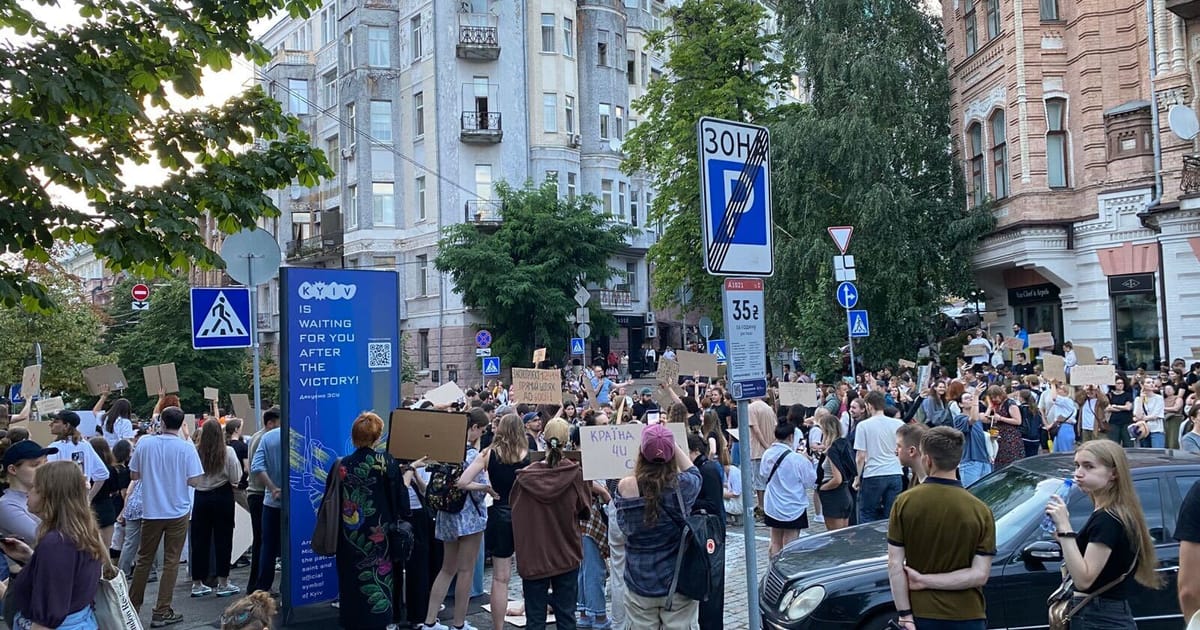

In recent developments from Ukraine, President Volodymyr Zelenskyy has signed into law a bill that modifies the operations of anti-corruption bodies in the country. This legislation has sparked notable domestic unrest, with protests emerging in Kyiv for the first time since Russia’s full-scale invasion in 2022. The reforms, which appear to dilute the powers of these watchdogs, have drawn criticism from civil society activists and have raised concerns about Ukraine’s aspirations to join the European Union. Critics argue that such changes might clash with EU standards and commitments to transparency and accountability which are vital for Ukraine’s future integration into European structures.
The move places President Zelenskyy in a complicated position as he navigates the expectations of the international community while addressing domestic governance issues. Civil society activists express concern that weakening anti-corruption efforts could hinder progress and trust that Ukraine has been trying to build amid the ongoing conflict with Russia. The EU’s support has been crucial in Ukraine’s fight for sovereignty, and maintaining this support requires a steadfast commitment to democratic reforms and anti-corruption measures.
Parallel to these political developments, tensions remain high on the broader geopolitical front. Despite an agreement for peace talks in Istanbul, Russia has reportedly launched a series of drone strikes on Ukrainian areas, leading to multiple casualties. These attacks have underscored the ongoing instability in the region and the challenges faced by diplomatic efforts to secure a ceasefire. The involvement of young people in Russia’s military initiatives, following a strategy of encouraging participation in “patriotic” activities, adds a concerning dimension to the conflict, highlighting the socio-economic impacts of prolonged hostilities.
This complex scenario of political maneuvering and military tension exists against a backdrop where Ukraine continues to strive for peace and stability. The discussions expected in Istanbul aim to provide a diplomatic pathway to de-escalation, though the recent attacks have cast a shadow on these efforts. Both Ukraine and Russia are under pressure to find a viable path toward peace that addresses the regional security and humanitarian needs felt across borders.
While Ukraine grapples with its internal and external challenges, developments in global politics suggest additional diplomatic relationships coming under scrutiny. In the United Kingdom, Prime Minister Keir Starmer faces pressure from his cabinet to officially recognize Palestinian statehood. This arises amidst international dismay over the Israeli military actions in Gaza, which have led to significant civilian distress. The UK government’s decision could have far-reaching implications for its foreign policy and its role in Middle Eastern peace efforts, reflecting the interconnected nature of international geopolitics and human rights concerns.
These events collectively illustrate the delicate balance of governance, diplomacy, and peace-building that leaders across the world must manage. In a world more interlinked than ever before, actions undertaken in one region can resonate across continents, influencing diplomatic ties and regional stability. The road ahead for Ukraine involves not only resolving immediate conflicts and addressing internal reforms but also aligning itself strategically with its international partners to foster broader cooperation and development.
As these stories develop, the international community watches closely, hopeful that calm and collaboration will guide the decision-making of leaders tasked with guiding their nations through these turbulent times. It is a poignant reminder of the importance of dialogue, empathy, and unity in addressing both new and longstanding challenges.
Source: {link}
